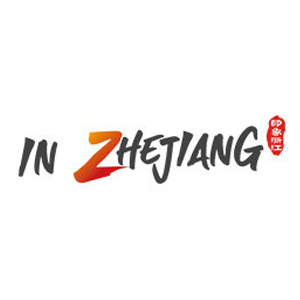Minghe: A historical and cultural town
2020-05-09 06:54:24 source: Yao Taojuan
Minghe is an ancient town in Cixi, a municipality in eastern Zhejiang. It is not far from Cicheng, the capital of Cixi County in good old days. Unlike many ancient towns nestled along a river, Minghe is next to Baiyang Lake and Duruo Lake and not far from Shanglin Lake, one of the better known lakes in eastern Zhejiang.
The town is named after Yu Minghe, a grandson of Yue Shinan who was a celebrated minister and calligrapher of the Tang Dynasty (618-907). The grandson died young shortly after he came out a winner in the imperial examination. He died in Chang’an, the capital of the dynasty. The people in his hometown in Cixi mourned him and named the town after him.

The name remains unchanged. The scenic beauty of Minghe remains vivid and fascinating in numerous ancient poems that have come down into history. Ninety-two poems written in the Qing Dynasty (1644-1911) were dedicated to Minghe. These poems sing of the cultural and historical glory of the lakeside town.
Today, the lakes remain scenic. Some grand houses built in the Qing Dynasty still stand to testify to the past glory of the town. These grand houses were largely built in the late 18th century and early 19th century with the wealth earned by local businesspeople that operated traditional pharmacies in both Zhejiang and beyond.
In the past, a typical traditional Chinese pharmacy functioned like a modern pharmaceutical and pharmacy in one. They had recipes and produced medicines. They purchased and processed herbals so that pharmacies catered to patients who came to get medicines prescribed by doctors who practiced traditional Chinese medicine (TCM). TCM pharmacies in Zhejiang led the whole country in the Qing Dynasty. And of all the TCM pharmacies of Zhejiang, those operated by pharmacy businesspeople in Minghe were industrial pioneers.

The success of Minghe as a powerhouse of pharmacy operations can be attributed to education and business tradition in town. Many people in town were well educated. Some successfully passed imperial examination and became government officials. Though many well-educated natives of Minghe became pharmacy operators, some of them were also poets, as testified by poems they left behind.
Most of these grand houses in the town were built by successful TCM pharmacy tycoons. The best known of these tycoons were six brothers of the Ye clan. The six brothers built six houses next to each other. These houses were financed and built for the six sons by Ye Tianlin, the TCM pharmacy tycoon. Of the six brothers, five wrote poems. They organized a poetry society and many scholars in eastern Zhejiang were members of the society. The society printed 32 titles of poetry collections in nearly 80 volumes. The Ye clan not only produced TCM pharmacy tycoons and poets but also some art collectors. Based on the precious masterpieces in the collection, an eight-book calligraphy collection was printed in the mid 19th century. In the first few decades of the 19th century, Minghe was a cultural center in eastern Zhejiang.

Of the six brothers, Ye Pushan started his pharmacy business in Hangzhou at 54 after he gave up his government career in 1808. The pharmacy made a great variety of TCM drugs which sold pretty well in Zhejiang and neighboring provinces. Processed herbal ingredients contributed a great deal to the pharmacy’s profitability and reputation.
Minghe, now a provincial town of culture and history, the only one of its kind in Cixi, is more than grand houses and TCM pharmacies. Jinxian Temple, a Buddhist sanctuary in town on Baiyang Lake, can be traced back to the sixth century. Before TCM pharmacy business became the dominant pillar of the town’s economy, Minghe was a farm products trade center. In the early Ming Dynasty (1368-1644), the town housed a government office dedicated to salt production administration as Minghe is not far from the sea. The pharmacy business in Minghe prospered in the Qing dynasty. Today, a TCM museum in town exhibits over 150 trademarks of herbal medicines made by pharmaceutical/pharmacy businesses based in Minghe and beyond.

read more




